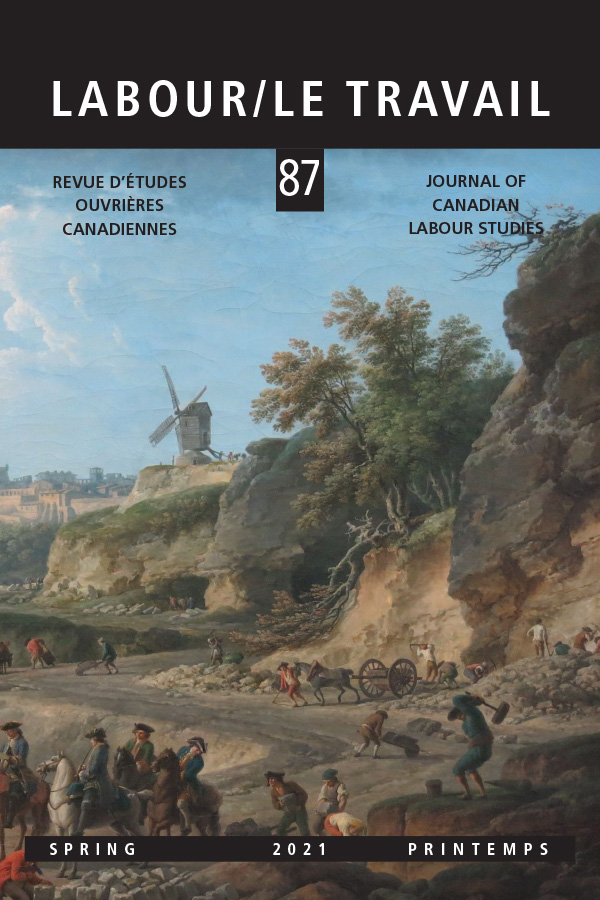Published 2021-05-31
Keywords
- dialectic,
- labour,
- commodification,
- Marxism,
- impossibilism
- class,
- evolution,
- revolution,
- women,
- race ...More
How to Cite
Abstract
Members of the Socialist Party of Canada (spc) played a prominent role in the labour revolt of 1919, the One Big Union, and the Winnipeg General Strike. The “failure” of all three has led labour historians to focus on the inability of the party to connect with Canadian workers, an inability fuelled by dogmatism, “impossibilism,” and the exclusion of women and workers of colour. This article turns this approach on its head, pointing out that these events have been unequalled in Canadian history, and seeks to explain why this should be so. It challenges the perception of the party as being wed to evolutionary thinking that caused its members to wait around for the revolution to happen. Instead, it reveals the powerful influence of the dialectical method developed by G. W. F. Hegel; its focus on human action was the philosophical underpinning of the spc’s relentless attack on the wage system and the capitalist system’s commodification of labour power. Far from being “metaphysical” or “otherworldly,” the spc’s insistence that workers must gain control of the product of their own labour spoke directly to them, including women and workers of colour. In the creation of the One Big Union, in the solidarity of the Winnipeg General Strike, and in the promise of the labour revolt of 1919, we find the legacy of a party committed to workers rising up.
Les membres du Parti socialiste du Canada ont joué un rôle de premier plan dans la révolte ouvrière de 1919, le One Big Union, et la grève générale de Winnipeg. «L’échec» des trois a conduit les historiens du travail à se concentrer sur l’incapacité du parti à établir des liens avec les travailleurs canadiens, une incapacité alimentée par le dogmatisme, « l’impossibilisme» et l’exclusion des femmes et des travailleurs de couleur. Cet article renverse cette approche en soulignant que ces événements ont été sans égal dans l’histoire du Canada, et cherche à expliquer pourquoi il devrait en être ainsi. Il remet en question la perception du parti comme étant marié à une pensée évolutionniste qui a poussé ses membres à attendre que la révolution se produise. Au contraire, il révèle la puissante influence de la méthode dialectique développée par G. W. F. Hegel; sa focalisation sur l’action humaine était le fondement philosophique de l’attaque incessante du Parti socialiste du Canada contre le système salarial et la marchandisation de la force de travail par le système capitaliste. Loin d’être «métaphysique» ou «d’un autre monde», l’insistance du Parti socialiste du Canada pour que les travailleurs doivent prendre le contrôle du produit de leur propre travail s’adresse directement à eux, y compris aux femmes et aux travailleurs de couleur. Dans la création du One Big Union, dans la solidarité de la grève générale de Winnipeg, et dans la promesse de la révolte ouvrière de 1919, nous trouvons l’héritage d’un parti engagé envers les travailleurs qui se soulèvent.
